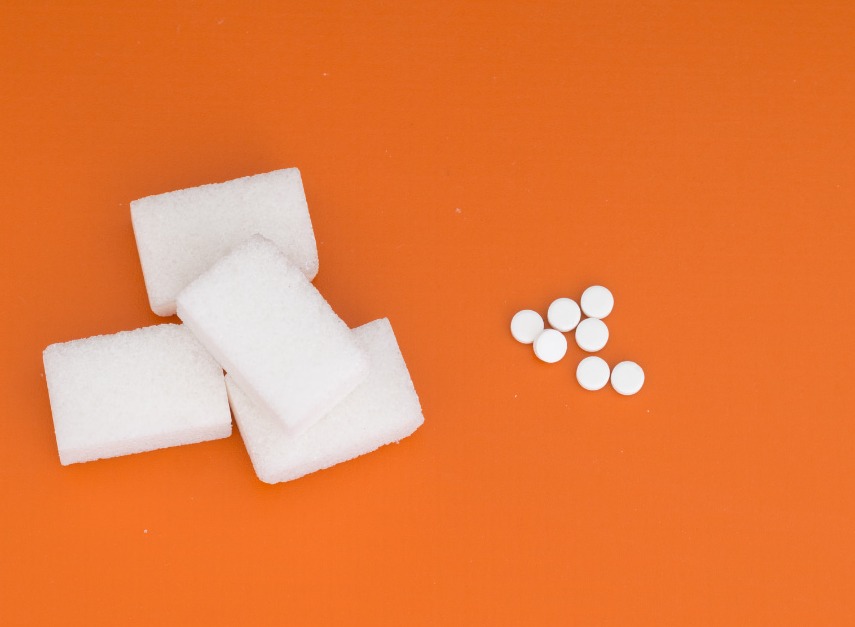- Home
- Share
- Forum
- General forums
- News from the media
- Artificial sweeteners linked to weight gain, finds new research
Artificial sweeteners linked to weight gain, finds new research
- 205 views
- 0 support
- 2 comments
All comments
![]()
nandaska16
![]()
nandaska16
Last activity on 09/08/2019 at 07:43
Joined in 2017
2 comments posted | 1 in the News from the media group
Rewards
-
Explorer
Hello,
I use stevia sweetner instead of sugar, I thought stevia was ok to use. Can you please enlighten me on this. Thank you. Sincerely, Marian buffini.

Unregistered member
I am allergic to the Aspartame/ Aspartamine included in most soft drinks and low calorie foodstuffs available and have read the full details of the bill that allowed it onto the Market in the US it was never intended for human use but as a Bulking Product for Cattle and other Farm animals, It was pushed through the US senate by Former President of the US Bill Clinton at the end of his term as President after Lobbiests pushed for the Bill to be Approved.
It has never fully been through human testing and most of what is available is negative and not positive, In the UK it was allowed without Scrutiny by the Pharmaceuticals Groups, as a Quick money spinner, and it worked almost 90% of UK diet products contain this product with the knowledge that there are over 200 seperate listed possible side effects, including anaphelaxix and Diabetes being amongst them
Give your opinion
Survey
Articles to discover...
Subscribe
You wish to be notified of new comments
Your subscription has been taken into account








Margarita_k
Community managerGood advisor
Margarita_k
Community manager
Last activity on 07/10/2020 at 11:39
Joined in 2016
1,195 comments posted | 154 in the News from the media group
1 of their responses was helpful to members
Rewards
Good Advisor
Contributor
Messenger
Committed
Explorer
Evaluator
The chances of developing diabetes, high blood pressure, heart disease and obesity are linked to consuming artificial sweeteners, according to the new large-scale study on the effects of the sugar substitute.
The research was conducted by scientists from the University of Manitoba, Canada and reviewed data from 37 studies which analysed more than 400,000 people for an average period of 10 years.
“The results showed a statistically significant association between consumption of artificial sweeteners and higher risks of diabetes and heart disease, as well as increased weight gain,” lead author of the study, Dr Meghan Azad told the Press Association.
By contrast, soft drinks industry executives said artificial sweeteners had been “deemed safe” by health regulators including the US Food and Drug Administration’s approval.
Artificial sweeteners are synthetic food additives that provide a sweet taste to mimic sugar, while containing significantly fewer calories. Many products which contain them are commonly labelled as ‘reduced sugar’ or ‘diet’ and have intended weight loss benefits which are disputed by the new research.
"Despite the fact that millions of individuals routinely consume artificial sweeteners, relatively few patients have been included in clinical trials of these products,” says the Canadian Medical Institution’s Professor Ryan Zarychanshi.
However, the study says the evidence was conflicting with Dr Azad adding: “caution is warranted until the long-term health effects of artificial sweeteners are fully characterised.”
"Given the widespread and increasing use of artificial sweeteners, and the current epidemic of obesity and related diseases, more research is needed to determine the long-term risks and benefits of these products,” Dr Azad added.
Director of the British Soft Drinks Association, Gavin Partington said: "These claims, from the University of Manitoba, run contrary to the substantial body of scientific research which shows how low-calorie sweeteners can help people to reduce their calorie intake and manage their weight."
The Independent